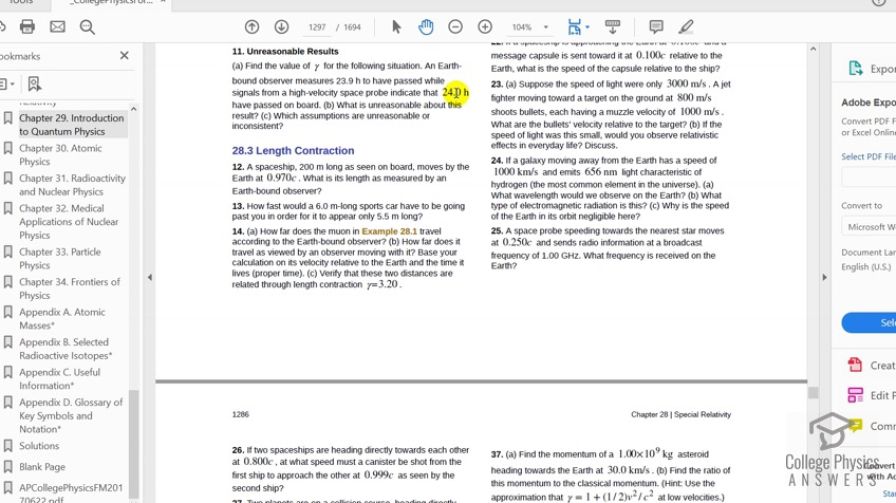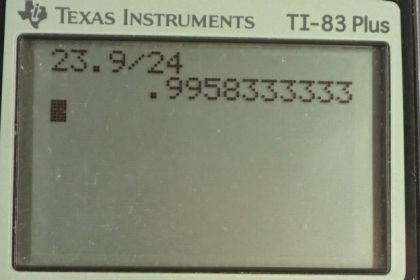Question
(a) Find the value of for the following situation. An Earth-bound observer measures 23.9 h to have passed while signals from a high-velocity space probe indicate that 24.0 h have passed on board. (b) What is unreasonable about this result? (c) Which assumptions are unreasonable or inconsistent?
Final Answer
- 0.996
- implies , which is impossible.
- A proper time that is longer than relativistic time is not reasonable. Either should be greater, or is smaller.
Solution video
OpenStax College Physics for AP® Courses, Chapter 28, Problem 11 (Problems & Exercises)

vote with a rating of
votes with an average rating of
.
Calculator Screenshots
Video Transcript
This is College Physics Answers with Shaun Dychko. We are going to find the value of gamma given that 24.0 hours have passed according to measurements done on board the space probe. And so this time because it's measured by, you know, sensors or a person that is in the space probe and that at rest with respect to whatever's being measured inside the ship; this time is considered proper time. And this time here is measured by somebody who is on the Earth and the space probe is going past this person and so this is a relativistic time being measured because the measurement made by this person is not at rest with respect to the thing being measued, which is some event on the spaceship. So this is relativistic time. And already we know that there's something wrong here because proper time is always meant to be less than relativistic time. This is why we have what's called time dilation, for fast objects; dilation meaning get bigger with speed. OK. Let's calculate though. So we have proper time is 24.0 hours and relativistic time is 23.9 hours, supposedly. And this relativistic time is the Lorentz factor—gamma— times proper time—t naught— and we'll calculate gamma by dividing both sides by t naught. So we have gamma is t over t naught, which is 23.9 hours divided by 24 hours which is 0.996. Gamma is meant to be always greater than 1 but since in this part (a), we have shown that it's less than 1, given these times that the question has, that implies that v is greater than c which is not reasonable because this is one of Einstein's postulates of relativity that well, I guess, suppose that's not really a postulate, you know, anyway. The idea in relativity is that the maximum possible speed is the speed of light c so you can't have a speed v greater than c. So either well, you can say that a longer proper time is not reasonable so either the relativistic time should be greater than what is reported in the question or the proper time—t naught—should be smaller.
